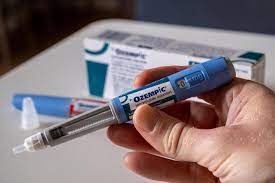As people age, the elderly’s attention to personal hygiene and health also increases. Bathing, being a very important part of daily cleaning, often puzzles the elderly and their family members as to how to arrange the frequency of bathing. There was once a belief that frequent bathing negatively affects the lifespan of the elderly, but is this really the case?
An example can help us discuss this issue. Mr. Zhang, a retired elder who values personal hygiene, is accustomed to bathing daily to maintain personal cleanliness and comfort. However, his children worry that this frequent bathing habit might be harmful to his health, even affecting his lifespan. To seek answers, they decided to consult a doctor.
In the doctor’s office, Mr. Zhang and his children listen carefully to professional advice. The doctor pointed out that the frequency of bathing for the elderly does not directly affect lifespan, rather, moderate bathing has benefits for maintaining skin cleanliness, preventing infections, and promoting blood circulation. As elderly people’s skin tends to be drier, bathing too frequently could lead to excessive skin dehydration. Therefore, the doctor suggested that the elderly adjust the bathing frequency flexibly according to seasonal changes, personal activity levels, and sweating.
On colder days or days with less activity, bathing 2 to 3 times a week is sufficient, while in hot temperatures or when activity levels increase, the number of baths can be increased. With the doctor’s scientific guidance, Mr. Zhang’s family gained a deeper and more scientific understanding of the frequency of bathing, realizing that an appropriate frequency actually helps the elderly stay clean, bringing multiple benefits.
Firstly, regular bathing can effectively remove dirt and bacteria from the surface of the skin, reducing the risk of skin diseases and infections. Secondly, the stimulation of water flow and gentle massage during bathing helps promote blood circulation, relieving muscle fatigue and stiffness. Furthermore, the bathing process is also a way to relax the body and mind and improve sleep quality.
However, the doctor also cautioned that overbathing could weaken the skin’s natural protection, causing the skin to become dry, itchy, and even possibly lead to inflammation. For the elderly with heart disease or vascular illnesses, frequent bathing could increase the burden on the heart, causing blood pressure fluctuations. Therefore, the elderly should pay attention to bathing time and water temperature control while bathing, and use moisturizing lotions after bathing to maintain skin hydration.
In summary, the bathing frequency of the elderly does not directly determine lifespan; the key is to find a suitable bathing method and balance. Through scientific bathing habits, the elderly can maintain personal cleanliness and also enjoy the other benefits of bathing. Family members should also pay attention to the elderly’s bathing habits and needs, providing necessary help and support. Bathing is not just about cleaning the body; it’s also an expression of self-care and maintaining health.
The elderly should adjust the frequency of bathing based on personal circumstances, ensuring body cleanliness while preventing side effects from overcleaning. A scientific lifestyle can help the elderly enjoy a healthier and more comfortable quality of life; therefore, we should encourage and care for the elderly to develop the good habit of proper bathing frequency, while paying attention to their physical and psychological needs, creating a happy and comfortable living environment for their later years.
We firmly believe that, by combining proper bathing habits with other healthy lifestyles, every elderly person can enjoy a more pleasant and graceful later life.







